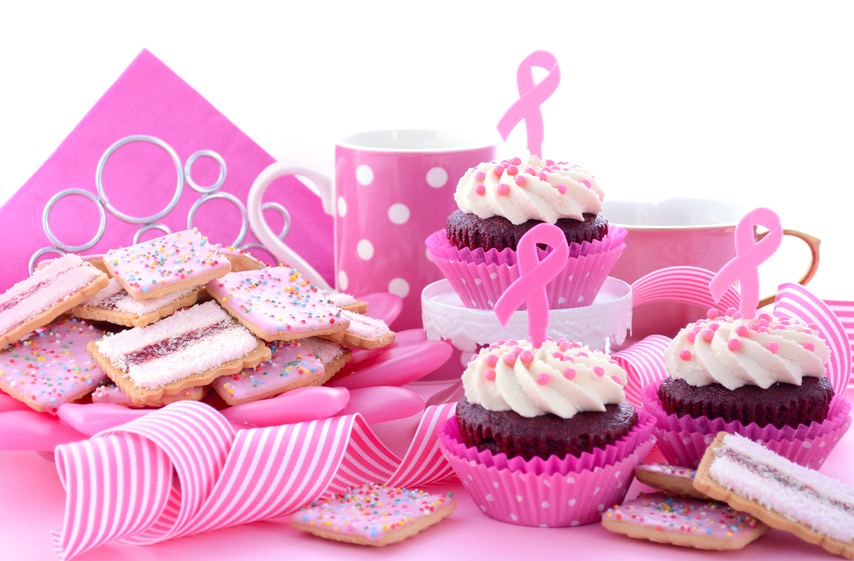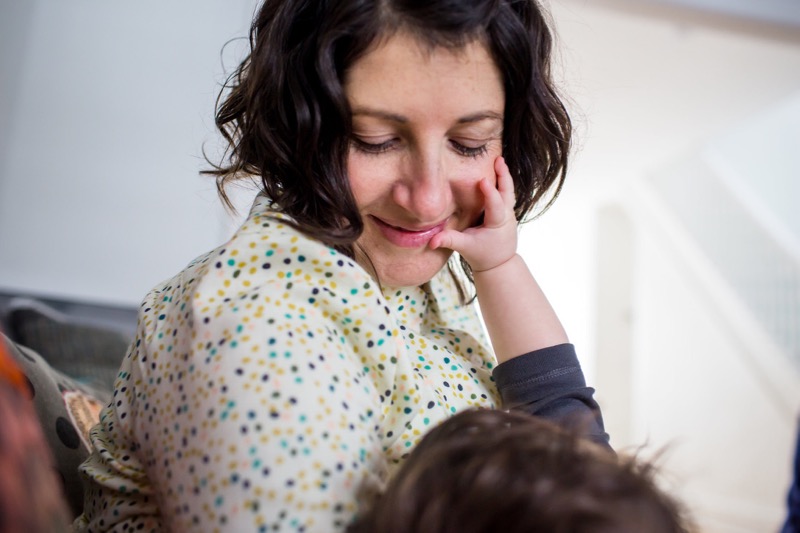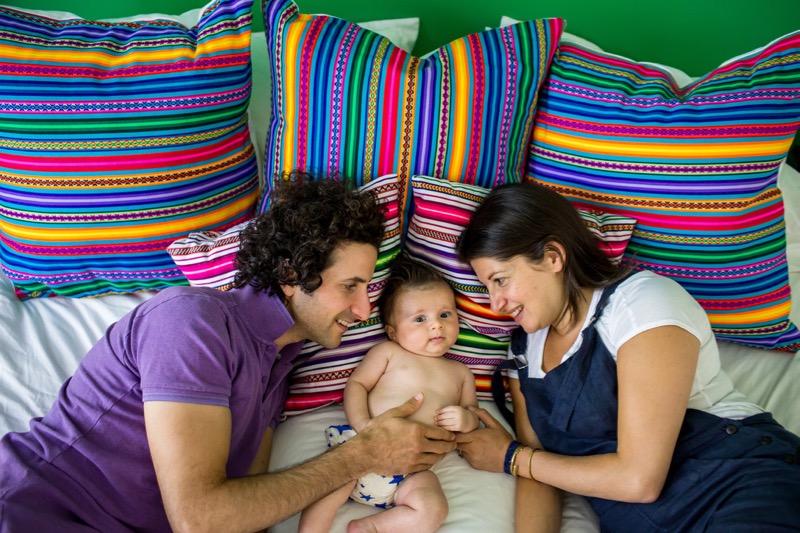How To Care For The Caregivers

Caregiving can be tiring and difficult, whether it’s your professional job or an upaid role as a caregiver for a parent, child, partner, or sibling. Some caregiving situations are temporary due to surgery, infections, broken bones or other injuries. Other caregivers are in it for a long haul, tending to someone with a chronic illness, cancer, physical or mental disability, dementia, arthritis, or many, many other conditions. It’s not easy and it’s something that has come to the forefront more than ever in recent months.
With the way the world is now, and likely going forward, it can start to feel like we’ve all moved into the role of caregiving in some ways. As the vulnerable people in our communities will need to rely more heavily on those of us who are more resilient, we must remember to also care for ourselves.
Caregiving isn’t going anywhere. The people who choose to care for others are often kind and generous, and their own needs get lost and forgotten. Let’s make sure this doesn’t happen by either giving extra special care to the caregivers in our life or making self-care a higher priority if you are a caregiver.
Self-Care tips for Caregivers
You’ve probably heard the expression: ‘You need to put your own oxygen mask on first’. But it can be challenging to put into practice when it seems like other people are struggling to breathe much, much more than you are. Still, there are a number of simple of ways you can focus on yourself no matter how chaotic life gets. Even if you only have an hour to yourself, you can make the most of it.
Self-care is obviously going to look different for every one of us. It’s not self-indulgent or selfish. We tend to think of self-care in terms of leisure or luxury, like going to the spa or taking an art class. These things can be part of self-care, but at its core, self-care is anything you do to take care of yourself mentally, physically and emotionally. It could be as simple as stopping for two minutes to drink a glass of water during a hectic day.
Eat Well
- Organic whenever possible
- Plant-based
- Local/seasonal
- Cooked from scratch
- Gluten-free
- Dairy-free
- Sugar-free
- Non-GMO
What you need might be different if you are following a specific diet like vegan or keto, but in essence, we need to be eating whole and unprocessed foods as much as we possibly can. If you’re in a time crunch, simple recipes like one-pot meals, freezer meals, elixirs, smoothies, chia puddings, hummus and veggies, and soups can be lifesavers. There are also many meal prep and meal delivery services that can help lighten your load.
Move Your Body
Get Outside
Our bodies need fresh air, nature and sunlight for our physical and mental health. If you’re in a hospital or care home setting, you’re likely exposed to artificial and fluorescent lighting that may tire you out, hurt your eyes, or give you a headache. Try to go outside during daylight hours, if possible, to receive natural Vitamin D and a full spectrum of natural light that will improve your mental outlook and help you sleep better.
Support Your Mind and Mental Health
Sleep and Rest
Sleep is a crucial time when our bodies relax, repair, and regenerate. If we aren’t sleeping well, we’re at risk for a number of diseases. Make sleep a priority – and these 10 Ways to Better Sleep can help you cultivate better sleep habits.
How to Help The Caregivers in Your Life
Drop Off a Meal or Snacks
Many caregivers get the food sorted for their patients or family members and don’t have the time to cook for themselves. A healthful meal, treat or snack is a great thing to offer. Some suggestions:
- 20 Freezer Meals for Busy People
- Lemon Lentil Vegetable Soup
- Best Gluten-Free Blueberry Muffins
- Chocolate Chia Pudding
- Coconut Curry with Cod
- Gluten-Free Tater Tots
- Crispy Ginger Cookies
- And if you’re really, really generous make them gluten-free sourdough bread!
You could also provide them with a gift certificate to a meal delivery service, restaurant, bakery or juicery so they can choose what they want delivered.
Phone, Email or Text to Let Them Know You’re Thinking of Them
You don’t have to chat with your caregiver loved one(s) for hours, especially if they are crunched for time. But everyone likes hearing from their friends, family and colleagues to know that they are not forgotten and that you value them.
Listen
Ask What They Need
We can’t always predict what caregivers need, despite how well we know them. Offer to help in ways that will be most useful to them – maybe that’s raking their leaves, giving them a ride, providing childcare, or any multitude of other bits and bobs. You won’t know what they need most until you ask!
Verbally Appreciate Their Efforts
Sure, actions can speak louder than words in some situations, but the actual words matter too. Your words don’t have to be eloquent or perfect, but it’s important to directly state that you appreciate what someone is doing. ‘Thank you for…’ is a good place to start!
Make a Music Playlist for Them
If you’re of a certain age you probably remember how fun it was to get a customized mixed tape from best friends or boyfriends/girlfriends. Create a special music playlist. I like using Spotify for this and prefer including songs that are beautiful and uplifting, but you can obviously customize based on each caregiver’s preferences.
Give Them A Day Off or Join Them
Are you able to fill in for a day or even a couple of hours? Giving someone permission to take care of themselves, and helping them make it possible, could be the greatest gift of all. If you’re able to join them while they’re in duty, that alone could help ease the burden.
Offer Financial Support If You Can
We all probably know a caregiver who is overworked and underpaid. If you’re able, financial support like gift cards to places you know they shop regularly are very, very helpful. In other situations, you may feel comfortable offering a loan or an outright financial gift.
Caregivers provide valuable and essential services to both our loved ones and strangers – and you might need one sometime in the future. Let’s all demonstrate thoughtfulness, kindness and compassion to the people who are some of the most selfless in our communities.
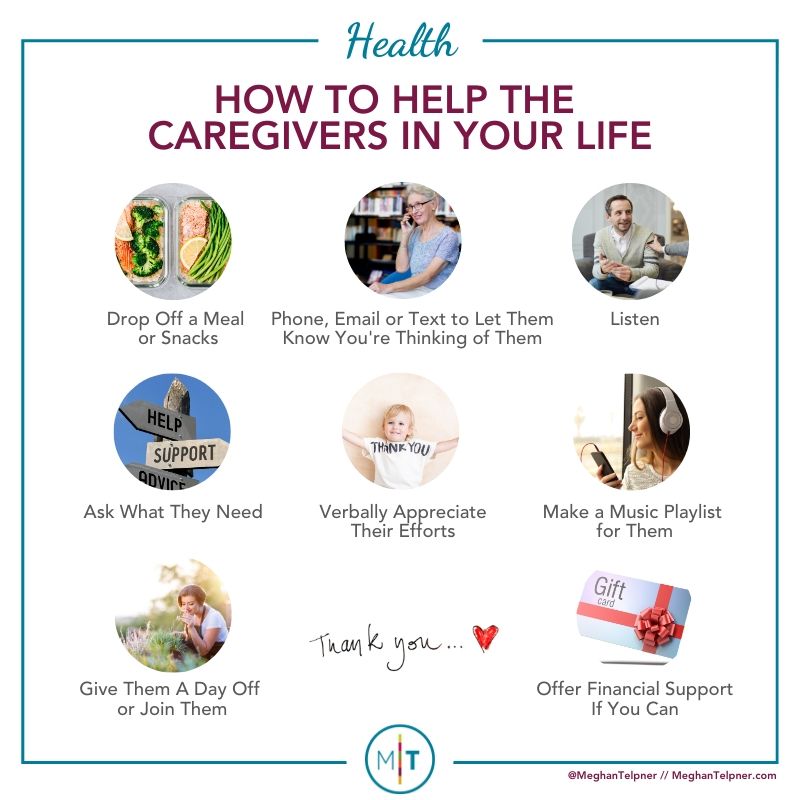
On My Mind Episode 13: Caring for the Caregiver
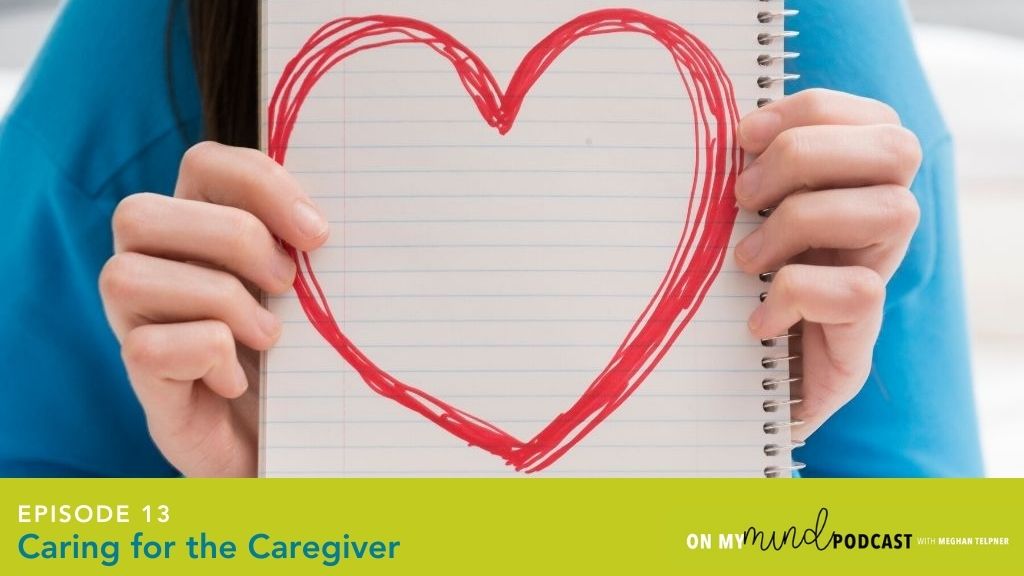
Subscribe today on your favourite podcast app and never miss an episode.
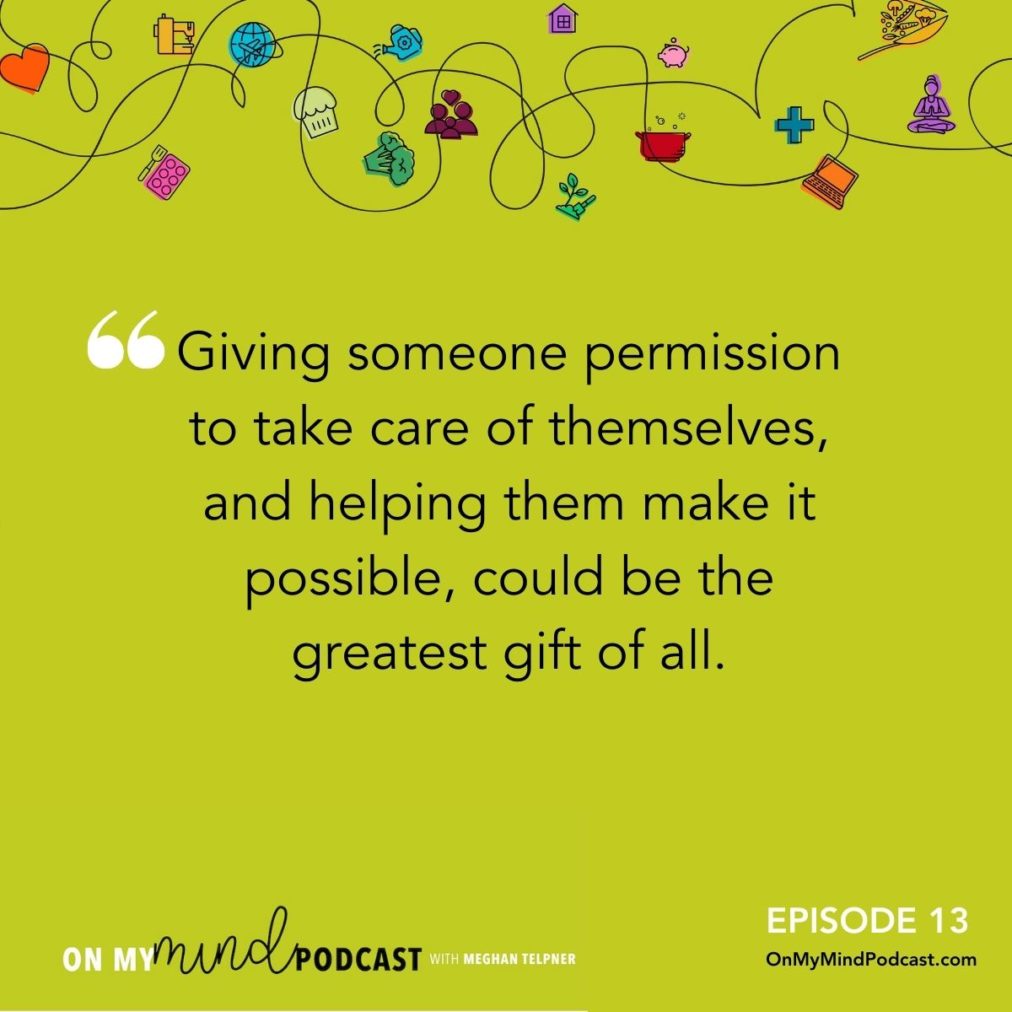
Free Resource Library
Enjoy more than 40 downloadable guides, recipes, and resources.















